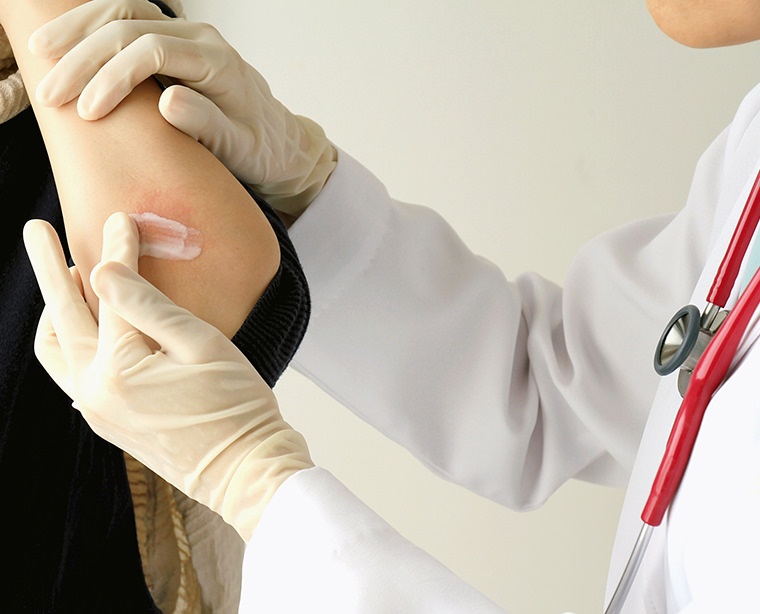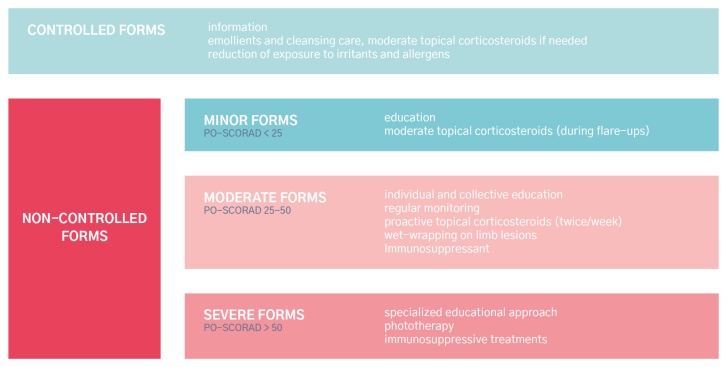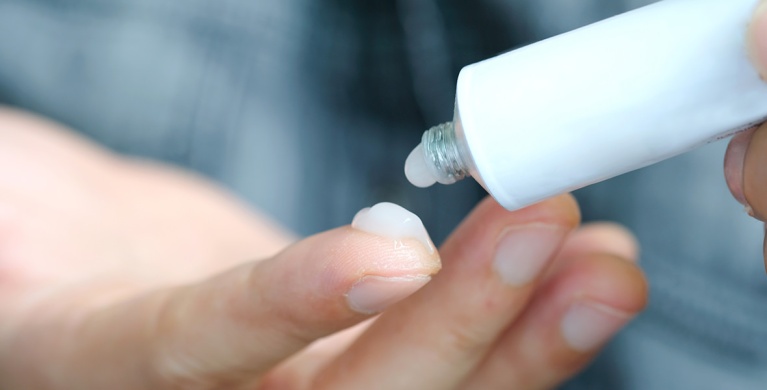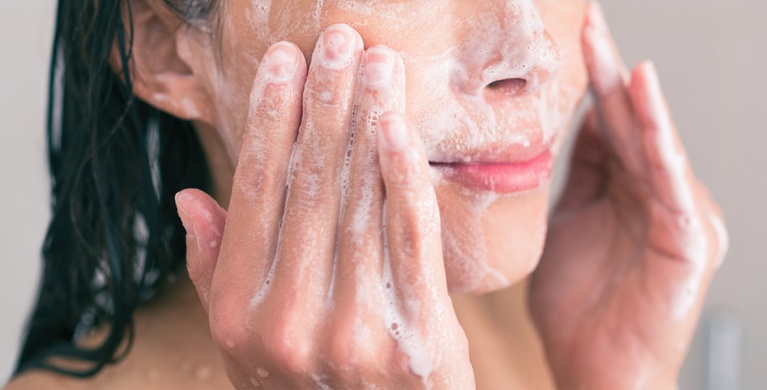

General treatments

The basic treatment for eczema generally are dermocorticoids. Other complementary medications and treatments, particularly for more severe forms of the condition, may be prescribed by a doctor.
General treatments for atopic eczema
The doctor, in concertation with their patient, decides whether to implement these treatments. Their decision is based on the severity of the eczema (established using assessment scores such as SCORAD) and on whether or not topical treatment has been sufficiently effective.
European guidelines for the treatment of atopic eczema

Phototherapy
Can treating eczema with UV rays cure eczema? Phototherapy sometimes produces excellent results in soothing moderate forms of the condition. It is carried out in special cabins, designed for dermatologists, with progressive programming of UV doses. Exposure to UV rays at beauty salons is not a medical treatment and is not recommended.
When? For atopic dermatitis, in older children, teenagers and adults whose condition is not sufficiently improved by the usual treatments, phototherapy may be indicated.
How? As a 12-week course of treatment with three sessions per week at the dermatologist's clinic.
Immunosuppressive treatments
Keep in mind: atopic eczema is partly caused by an excessive immune reaction of the skin, resulting in inflammation. For moderate to severe atopic eczema, treatment may include immunosuppressants.
When? In the event of moderate to severe eczema that persists despite careful topical corticosteroid therapy and with a SCORAD > 40
Targeted biotherapies
New medications may be suggested by the medical profession. It is an antibody that blocks the receptors for interleukins (pro-inflammatory substances), which are produced in excess and which maintain eczema's inflammatory reaction. Since atopic eczema is linked in part to an abnormal immune response to molecules that penetrate the skin, the treatment aims to block this response before the onset of inflammation.
When? For moderate to severe atopic eczema (SCORAD >40), after failure, intolerance or contraindication to other treatments.
How? By subcutaneous injection every two weeks for several months.
Are antihistamines effective in relieving atopic eczema itching?
Are antihistamines a useful eczema treatment? Just like prebiotics or probiotics, there is no consensus in the scientific community and they are still being studied to establish their value.
General treatments for eczema caused by a contact allergy
Retinoids
Eczema caused by a contact allergy is treated differently than atopic eczema. Some retinoids have been on the market for approximately 10 years and are used specifically to treat severe chronic hand eczema. It may only be prescribed by a dermatologist and only as a second-line treatment if treatment with topical corticosteroids is unsuccessful.

